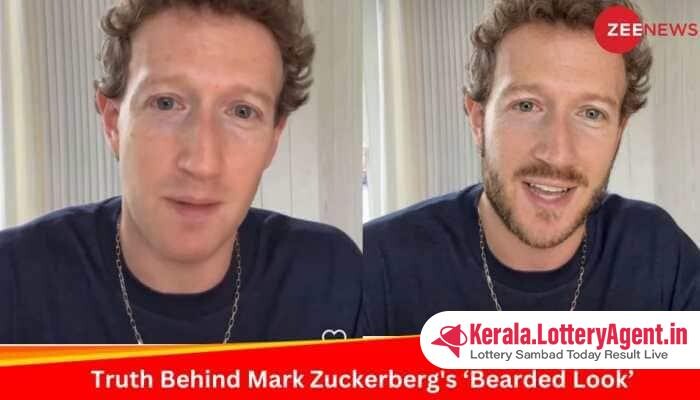
The online world spun into a frenzy recently, as a photo purporting to show Mark Zuckerberg, Meta CEO, sporting a beard, spread like wildfire across the internet. The image, illustrating the normally clean-shaven tech mogul with a new hairy look, captivated the attention of social media users, quickly elevating the conversation to viral status. As people began asking whether Zuckerberg had indeed decided to change up his well-known aesthetic, the truth eventually came to light, revealing more than met the eye.
A tweet from Pop Crave shared the viral image, captioning it simply: “A fake image of Mark Zuckerberg with facial hair is going viral.”
Indeed, the photograph in question has been confirmed to be digitally altered. According to social media posts, artificial intelligence (AI) tools were used to create the striking image, manipulating a screenshot from a video where Zuckerberg was introducing Meta’s Llama 3. The edited image, produced after the screenshot, eventually found its way to various social media platforms, igniting a flurry of excitement and theories.
The origins of the fake beard photo can be traced back to a moment during an announcement Mark Zuckerberg made last Thursday, unveiling an improved AI assistant from Meta. This assistant is the latest iteration built upon the open-source ‘Llama’ big language model. Zuckerberg described the offering as “The most intelligent AI assistant that you can freely use,” during the event. Notably, among the elements that caught the viewers’ attention in Zuckerberg’s presentation video was a metal chain necklace he donned, marking a deviation from his usually minimalist sartorial choices.
Zuckerberg, now 39, has become synonymous with a wardrobe consisting mainly of unassuming grey t-shirts – a uniform of simplicity he has consistently maintained over the years. Consequently, another image portraying the bearded version of Zuckerberg from the same video began to circulate broadly on Twitter and other social networks, further fueling speculation and curiosity.
The public reaction to the edited bearded photo of Zuckerberg was a mixture of amusement and endorsement. Many users chimed in with their thoughts on the new look, despite being aware of the photo’s doctored nature. One user exclaimed, “IT WAS FAKE⁉️”, while another shared the original image for comparison, indicating no beard in sight.
The banter continued with various humorous tweets rolling in, including one that contrasted the doctored image with the original saying, “you vs the guy she doesn’t want you to know about.” Others speculated on the appeal of the bearded look, with remarks on making Zuckerberg’s image appear more human, and a number of users even suggesting he should consider actually growing a beard.
Although it was a digitally created illusion, the photo had momentarily given internet users an alternate vision of the tech executive—a bearded Zuckerberg. This brief yet intense episode of internet folklore underscores the capabilities and influence of AI-generated content in today’s digital landscape.
In a world of ever-advancing technology and the persistent churn of social media, the lines between reality and digital artifice continue to blur. While the bearded image of Mark Zuckerberg was quickly debunked as fake, it served as a potent reminder of how quickly misinformation can spread – and also, perhaps, of the public’s interest in seeing iconic figures in a new light, even if just for a moment of shared, viral humor.
Amidst the fleeting narratives of online culture, this episode duly notes that even the most powerful of tech titans like Zuckerberg are not immune to becoming the subject of digital manipulation and internet memes, an inherent aspect of the influential yet unpredictable social media world they help to create.












